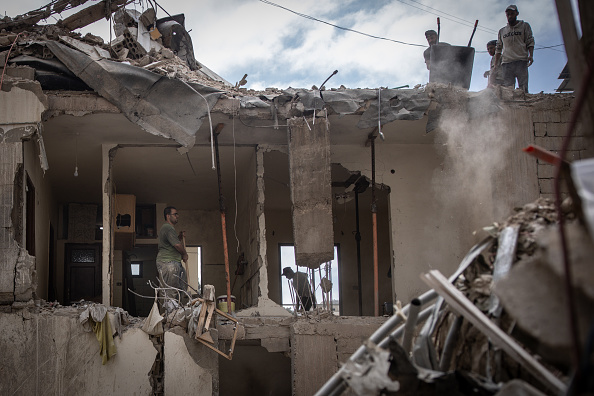Fears of an all-out regional war in the Middle East have risen after Israel killed at least 492 people in Lebanon on Monday, in what has been the deadliest single day in the country for decades.
Israel’s warplanes carried out intense airstrikes on residential towns in southern and eastern Lebanon. Among those killed were 35 children and 58 women, with over 1,600 people wounded, according to Lebanon’s health ministry.
In retaliation, Hezbollah launched rockets at military targets in northern Israel and settlements in the occupied West Bank. It stressed their focus is on military objectives “in defence of Lebanon and its people.”
These latest attacks come after the terror attacks in Lebanon last week when explosions of communication devices, believed to be orchestrated by Israel, killed 42 and injured more than 3,000.
Lebanon’s prime minister Najib Mikati condemned Israel’s actions as “a war of extermination” and urged the international community “to pressure Israel to end its aggression.”
The Israel Defense Forces chief Lt Gen Herzi Halevi hinted at further military action, stating they are targeting “combat infrastructure that Hezbollah has been building for the past 20 years.”
The attacks forced tens of thousands of Lebanese to flee north for safety. Reports of Israeli phone calls ordering people to evacuate their homes have been described by Lebanon’s Information Minister Ziad Makary as “psychological warfare.”
This marks the most significant escalation since the disastrous 2006 Israel-Lebanon war, which was a strategic setback for Israel.
“Children crying, terrified”
Save the Children condemned the killing of children in the Israeli attacks. “Today is the deadliest day since last October,” said Jennifer Moorehead, the NGO’s country director. “We’re seeing strikes in dozens of towns, families desperately trying to flee with whatever they can carry, children crying, terrified by the sound of drones and fighter jets.”
Iran’s President Masoud Pezeshkian accused Israel of attempting to ‘trap’ his country in a wider conflict. “They are dragging us to a point where we do not wish to go.”
Egypt’s foreign ministry urged “international powers and the United Nations Security Council to intervene immediately” to halt “the dangerous Israeli escalation in Lebanon.”
The UN peacekeeping body in Lebanon (Unifil) issued a statement expressing “grave concern for the safety of civilians in southern Lebanon.”
“Any further escalation of this dangerous situation could have far-reaching and devastating consequences, not only for those living on both sides of the blue line, but also for the broader region,” the statement read.
Iraqi Prime Minister Mohammed Shia al-Sudani called for an urgent meeting of Arab leaders on the sidelines of the UN General Assembly in New York.
U.S. President Joe Biden, scheduled to address the main debate of the United Nations General Assembly in New York on Tuesday, said he was working to calm the situation. “I’ve been briefed on the latest developments in Israel and Lebanon. My team is in constant contact with their counterparts, and we’re working to de-escalate,” he said.
















